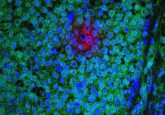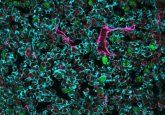SABCS15: Anastrozole as effective as tamoxifen in ductal carcinoma in situ

Anastrozole has been demonstrated to be as effective as tamoxifen for the treatment of ductal carcinoma in situ (DCIS) in postmenopausal women.
The results of the Phase III IBIS-II DCIS trial, which were presented recently at the 2015 San Antonio Breast Cancer Symposium (8–12 December, TX, USA) and also published in The Lancet, suggest that anastrozole could represent a new treatment option in this patient population.
“We found that anastrozole and tamoxifen had similar overall efficacies, with slightly better outcomes for those who took anastrozole. But more importantly, because of their very different side effects, anastrozole can be offered as an alternative for patients who may not tolerate tamoxifen as well or have previous illnesses making tamoxifen unsuitable,” commented lead author Jack Cuzick of the Wolfson Institute of Preventative Medicine at Queen Mary University of London (UK).
The IBIS-II DCIS trial included 2980 postmenopausal women with DCIS from across 14 countries. Participants received either anastrozole or tamoxifen for the 5 year period postsurgery. After a median follow-up of 7.2 years, 144 of the women enrolled had developed breast cancer and there had been 69 deaths – four of which were due to breast cancer.
In terms of disease recurrence, the outcomes were similar between the two therapy arms. Individuals who received anastrozole were associated with an 11% lower rate of recurrence of DCIS or invasive cancer compared with women who took tamoxifen, but this difference was not significant.
Analysis of adverse events revealed that these were distinct between the two groups. The anastrozole-treated women experienced fewer womb, ovarian and nonmelanoma skin cancers, and fewer deep vein thromboses and gynecological issues, compared with those who took tamoxifen. However, the results revealed that the frequency of strokes, fractures and musculoskeletal issues was higher in those taking anastrozole.
Cuzick continued: “Now we know that anastrozole is effective for treating hormone sensitive DCIS, women will have a greater choice of treatments to suit their own previous medical histories and tolerability of medications.”
The trial was limited by its lower-than-expected event rate, which adds some uncertainty regarding the lack of statistical significance of some of the small differences seen. The authors state that it is too early to assess the effect of these treatments on mortality, and will continue with long-term follow-up and further research.





